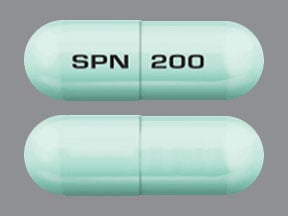
Qelbree Coupons & Savings Card – Discount Prices from $387.10
My prescription
Edit
200MG, Qelbree (30 Capsule Extended Release 24 Hours)
Select pharmacy

CVS
$418.54
COUPON PRICE
Albertsons
$387.10
COUPON PRICE
Walgreens
$417.75
COUPON PRICE
Walmart
$418.79
COUPON PRICEQelbree savings card
Show this card to your pharmacist
Albertsons
$387.10
BIN
ID
PCN
GRP
015995
LHKPX882517
GDC
DR33
Powered by
Related NRIs prescriptions
More prescriptions for adhd
Related NRIs prescriptions
More prescriptions for adhd
Price history for Qelbree
30 Capsule Extended Release 24 Hours, 200MG
Average retail price for Qelbree
Average SaveHealth price for Qelbree
Our price history data is based on aggregated prescription data collected from participating pharmacies in America. Our prescription data updates daily to reflect the latest price changes. If you notice a missing data point, it means there wasn't sufficient data available to generate a monetary value for that date.
*Retail prices are based on pharmacy claims data, and may not be accurate when we don't have enough claims.
Qelbree dosage forms
Dosage Quantity Price from Per unit 100MG 30 Capsule Extended Release 24 Hours $397.29 $13.24 150MG 30 Capsule Extended Release 24 Hours $397.24 $13.24 200MG 30 Capsule Extended Release 24 Hours $397.65 $13.26 200MG 60 Capsule Extended Release 24 Hours $780.31 $13.01
| Dosage | Quantity | Price from | Per unit |
|---|---|---|---|
| 100MG | 30 Capsule Extended Release 24 Hours | $397.29 | $13.24 |
| 150MG | 30 Capsule Extended Release 24 Hours | $397.24 | $13.24 |
| 200MG | 30 Capsule Extended Release 24 Hours | $397.65 | $13.26 |
| 200MG | 60 Capsule Extended Release 24 Hours | $780.31 | $13.01 |
What does Qelbree do for ADHD?
Qelbree is a medication used to treat attention-deficit/hyperactivity disorder (ADHD) in children and adolescents. It works by affecting certain neurotransmitters in the brain, which can help improve attention, focus, and impulse control. Unlike some other ADHD medications, Qelbree is not a stimulant.
Can you take Qelbree with Wellbutrin?
It is important for a healthcare provider to evaluate the combination of Qelbree and Wellbutrin, as both medications can affect neurotransmitter levels in the brain. There may be an increased risk of side effects such as seizures when these medications are taken together. A healthcare provider can assess the potential risks and benefits and determine the appropriate treatment plan.
What are the positive effects of Qelbree?
Qelbree (viloxazine hydrochloride) is a medication used to treat attention-deficit/hyperactivity disorder (ADHD) in children and adolescents. The positive effects of Qelbree may include improved attention, reduced impulsivity, and decreased hyperactivity. It is a non-stimulant medication, which can be beneficial for individuals who may not respond well to stimulant medications or who experience undesirable side effects from them. Additionally, Qelbree has a lower potential for abuse compared to stimulant medications.
What does Qelbree do to the brain?
Qelbree (viloxazine hydrochloride) is a medication that affects the brain by modulating the levels of certain neurotransmitters, particularly norepinephrine. It is used to treat attention-deficit/hyperactivity disorder (ADHD) by helping to improve attention, focus, and impulse control. The exact mechanism of action is not fully understood, but it is believed to enhance the activity of norepinephrine in the brain, which plays a role in attention and behavior regulation.
Can you take Qelbree with Wellbutrin?
It is important to consult a healthcare provider before combining Qelbree (viloxazine) with Wellbutrin (bupropion), as there may be potential interactions. Both medications can affect neurotransmitter levels in the brain, and a healthcare provider can assess the risks and benefits based on the individual's specific health needs and conditions.
